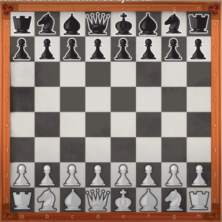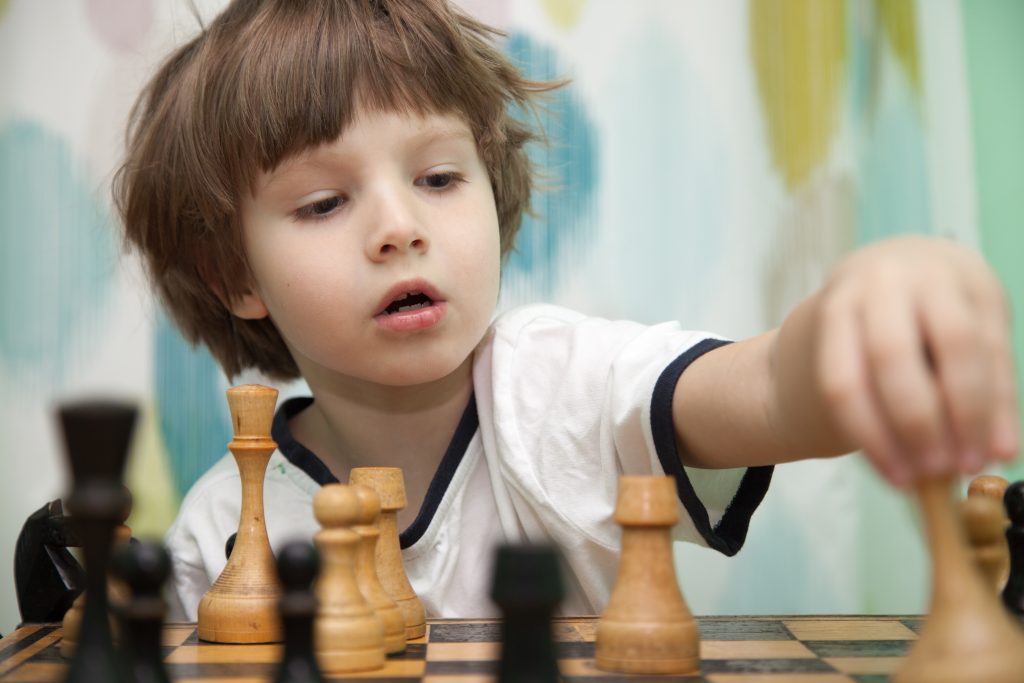In this post, we are going to see the convenience of teaching chess to kids and the main reasons that will justify it to those who consider it a complex that can only be accessed as an adult.
In Smartick we have a program to learn how to play chess. Smartick Chess is an educational chess tool for children that highlights the benefits of chess as an educational tool.
Index
Chess, What Is It?
Chess is one of the oldest known games and, of course, it is one of the most known and played all over the world. This fact alone should be enough as the only and main reason to justify the fact of teaching chess to children.
Let’s start from a common point, explaining what the game of chess itself is and where it comes from. Chess comes from India, where a similar game called “chaturanga” was played more than 1500 years ago. Over time, the game spread to Persia and then to Europe, where some modifications were made to the rules and pieces. Since then, chess has become one of the most popular and prestigious games in the world.
Chess is a game of strategy in which two players compete to control the board by moving pieces of different types. Each piece has a specific move, and moves are planned in advance in an attempt to win the game.

Benefits of Chess for Kids
From Smartick we believe that there are three main reasons to teach chess to children.
- Improved concentration and problem-solving. Chess helps children to concentrate and develop critical thinking and problem-solving skills. When playing, they must consider various options and foresee consequences of making a decision.
- Increased confidence and self-esteem. Playing chess can increase children’s confidence and self-esteem, especially when they win games and learn from their mistakes. This is especially helpful for children who have difficulties in other aspects of their lives.
- Social and emotional development. Chess is a social game that can help children develop social and emotional skills. It teaches them to be patient, to be good losers and winners, and to interact in a respectful and sportsmanlike manner with others.
When Is the Best Time to Teach Chess to Kids?
As for when it is best to start teaching chess to children, it depends on the age and interest level of each child. Some experts recommend starting to teach chess to children from the age of 5 or 6, when they have a greater ability to understand and retain rules and concepts. However, some children may be interested and able to learn to play before or after this age. The key is to find a time when the child is willing and motivated to learn and play.
Chess for Kids: How to Introduce It?
At Smartick we think that chess for kids should be introduced gradually. As a first contact activity to introduce our sons and daughters to chess we can start by teaching them the names of the pieces, outside the context of the board and play to hide them around the house and let them find them as we tell them. “Find the white rook that is in the living room”, or “You have to discover the hiding place of 3 of the black pawns in the bathroom”.
This activity is a fun and accessible way for 5-year-olds to become familiar with chess and begin to understand its basic concepts. Over time, you can teach them more about the rules and strategies of the game.
From there and always depending on the interest shown by the learner, we will begin to show the positions on the board and the most basic moves… but that’s a post for another post that will not be long in coming.

Final Conclusion
In summary, learning chess for kids is a fun and educational game that offers many discoveries and skills, and teaching them chess is an excellent way to stimulate their mental, social and emotional development!
That’s why at Smartick we have developed, Smartick Chess, our own method to teach chess to kids from scratch. Don’t hesitate to register at Smartick. You will have a free trial period of our programs and from there you will be able to access our Smartick Chess platform.
Learn More:
- The Chessboard
- Learn How to Find Exact Square Roots and Visual Examples
- 7 Pieces of Advice to Help Our Children Overcome Shyness
- I’m Bored: The Art of Knowing How to Get Bored
- Reasoning Games to Improve Mathematics







